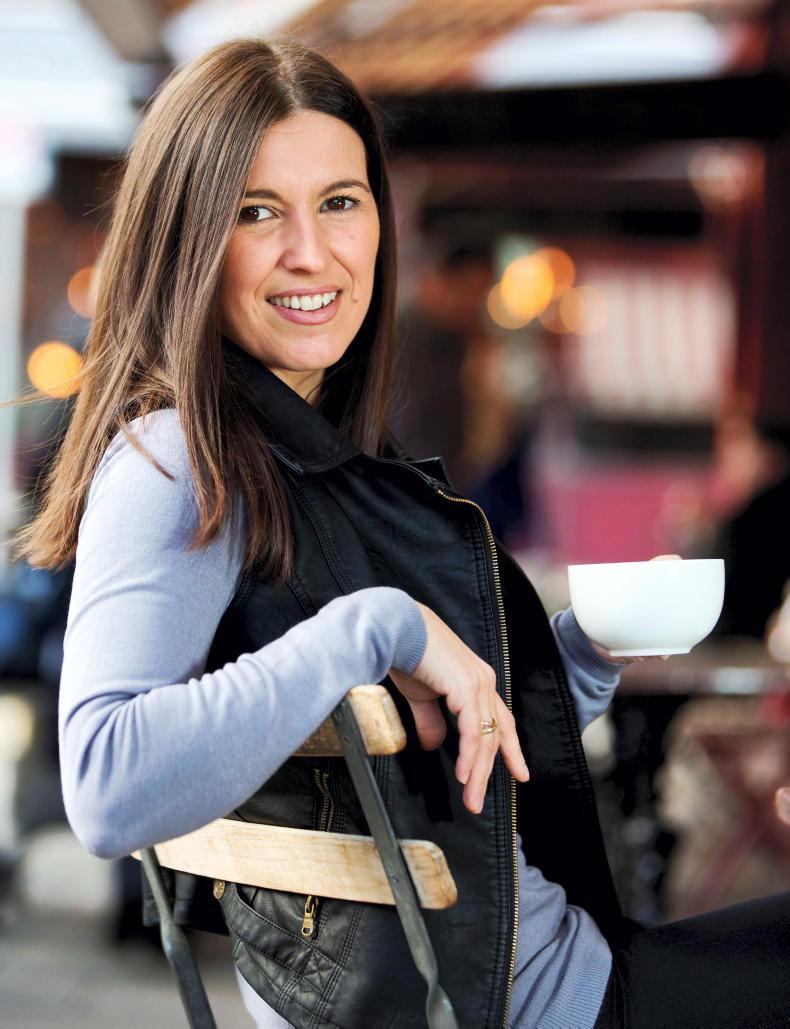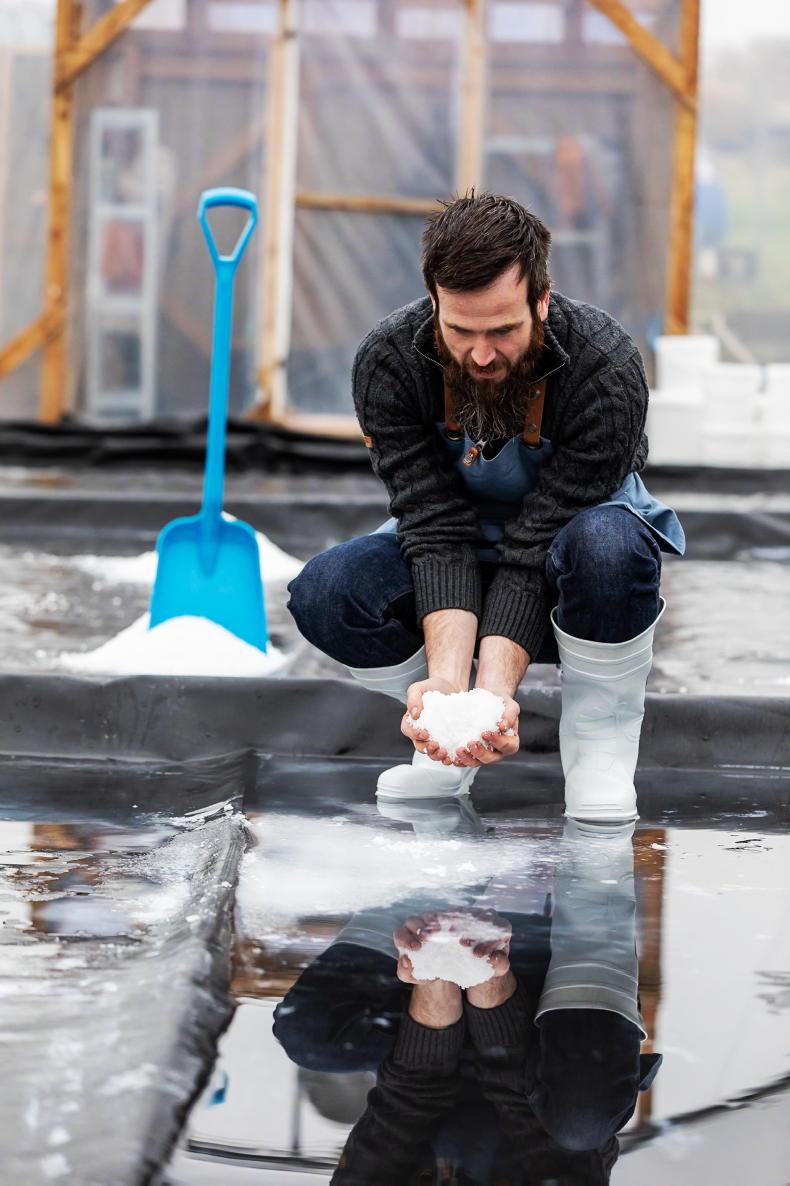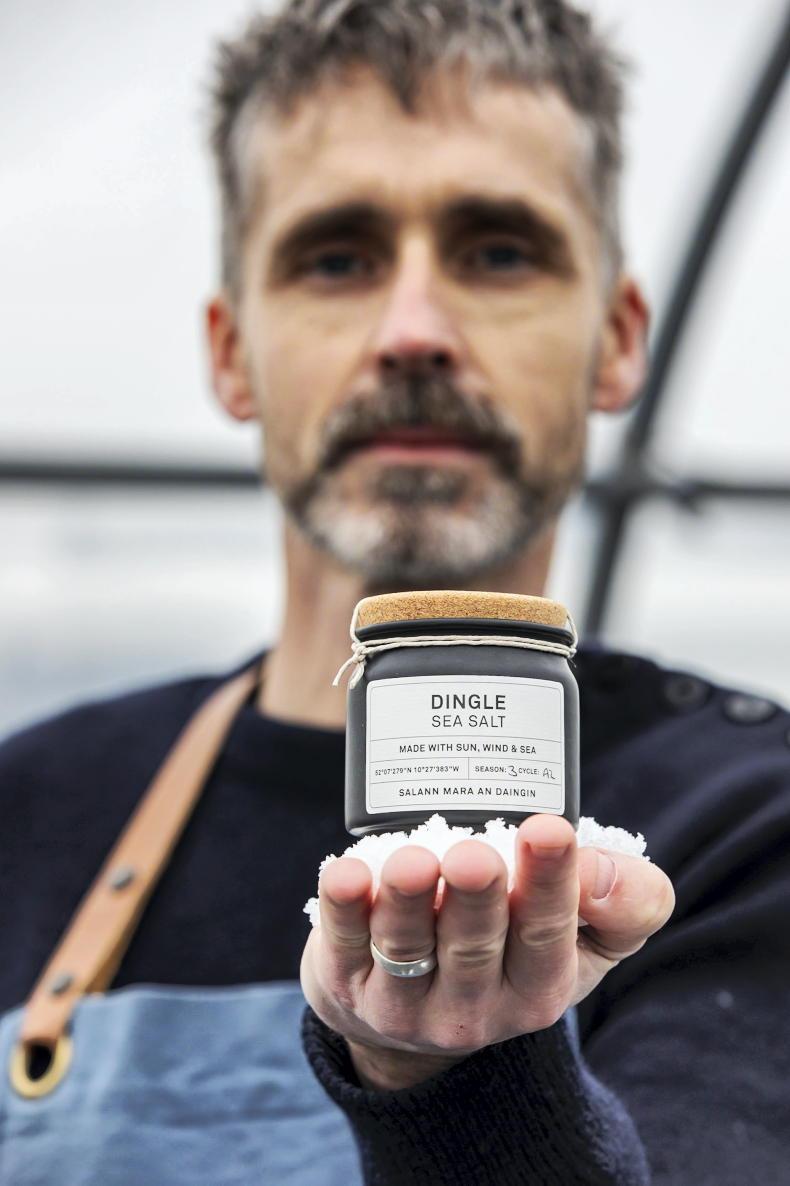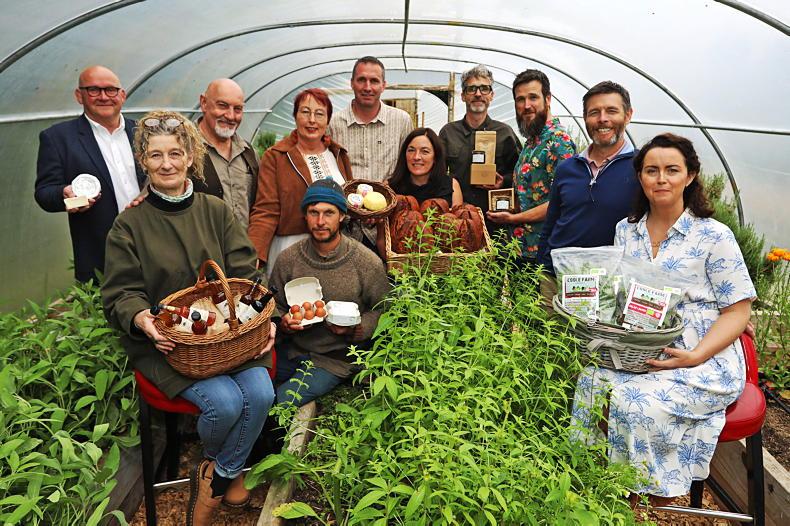What does the word ‘provenance’ mean to you? To the Irish food producing community, it means everything.
At its most basic, provenance is defined as a ‘place of origin’, but in gastronomic and agricultural circles, it infers much more. To savvy Irish consumers, provenance means trust – it means the foods they purchase has traceability, and the money they spend goes back into the pockets of farmers and producers.
The word became synonymous with food a few decades ago, when chefs first started sharing local ingredients on menus. Today, consumers expect to see provenance of ingredients listed alongside restaurant menu items – even fast-food chains will advertise that the beef in their burgers is Irish.
In a perfect world, the practice of provenance should lead to relative financial gain for small businesses. Unfortunately, this is not always the case. Menu fraud is a serious challenge for Irish food producers. This is also known as food fraud, and it happens when food is marketed a certain way and the end consumer is deceived, usually for financial gain.
Instances of food fraud include misrepresenting ingredients, adding in substitutions or mislabelling foods. This is a serious problem which can result in health risks for consumers. It’s a big problem for producers, too, who might be mentioned on menus or in prepared products, but aren’t receiving any actual orders.
The Food Safety Authority of Ireland (FSAI) handles cases of suspected food and menu fraud and these can be reported via their advice line 0818 33 66 77. You can also report suspected food fraud to the Department of Agriculture, Food and the Marine (DAFM). That said, there is no specific food or menu fraud law.
With these challenges, how do we ensure producers and farmers are valued for the foods they provide? One way is to maintain best practice within the wider hospitality industry, to discourage such practices.
Instances of food fraud include misrepresenting ingredients, adding in substitutions or mislabelling foods
The Euro-Toques organisation has been leading the charge of menu provenance for almost 40 years. They celebrate Irish producers and chefs creating menus and products which speak to our culinary traditions, sustainable methods, quality and flavour.
Euro-Toques Ireland
In 1986 – well over a decade after penning her final Irish Farmers Journal column – revered chef and slow food advocate, Myrtle Allen, got together with other well-known European chefs to form Euro-Toques. Through this organisation, they aimed to connect like-minded chefs, support small producers and, in doing so, create best practice within European gastronomy.
That same year, Myrtle formed the Euro-Toques Ireland branch, with co-founding commissioners John Howard, Declan Ryan and Gerry Galvin.
Today, Euro-Toques Ireland has over 200 members. Each year, they feature their two flagship events: the Euro-Toques Young Chef of the Year competition, and their Euro-Toques Ireland Food Awards.
The latter was held on 26 May, where seven Irish artisan producers walked away with top accolades (see panel); and numerous others were celebrated. These awards are meaningful for producers, because they are judged and awarded by Euro-Toques’ chef members.
“Euro-Toques was founded by Myrtle Allen with the aim of supporting small artisan producers and protecting the vital connection between what we produce and what we place on our tables,” says Manuela Spinelli, Euro-Toques Ireland head of community. “It is no coincidence that this year’s theme was ‘Honouring Ireland’s Kitchen Table’ – a reminder that our core values are simple, but deeply rooted.”

Manuela Spinelli is Euro-Toques Ireland head of community.
Membership of Euro-Toques Ireland is divided between the chef community and Irish food producers. While chefs pay annual membership fees, these fees are waived for food producers who wish to join. Manuela says Euro-Toques honours those who remind us that “the story of Irish food begins long before it reaches a plate.”
“Provenance is the foundation of trust between farmers and producers, chefs, and diners. Knowing where our food comes from means knowing the people, the land, and the values behind it,” she says.
Aishling Moore
One chef who was been heavily involved in this year’s Food Awards was Aishling Moore; owner and executive chef of the Michelin Bib Gourmand Goldie Restaurant in Cork. Aishling leads the Euro-Toques Ireland Food Council, which curates the awards each year.
“By showcasing artisanal Irish producers this way, we encourage other chefs to start using their products,” she explains. “There are such meaningful links being made through these awards; we’re not just shouting about it – we’re buying it, and the buying part is the important part.”
On menu provenance, Aishling believes that when you get to know the person behind the product, it increases the value of it. She says it’s the duty of chefs to champion food producers.
“Years ago, it was a trend to include provenance on a menu,” she says. “Now, it’s a pre-requisite. Our customers want to know what they’re eating and where it came from; they want to see the person behind the product. I am never seeking a specific ingredient; how I work is: ‘what do you have? I’ll take it.’ I like to be reactive with our menus.
“I think producers have worked around chefs for so long; taking on their specifications,” she adds. “It’s time for chefs to work around producers. If we don’t encourage them to grow, we’ll be left with a sterile food culture.”

Aishling Moore is owner and executive chef of Goldie Restaurant, Cork, and is head of the Euro-Toques Food Council. \ Donal O' Leary
While menu fraud continues to occur, Aishling believes there are plenty of chefs who take provenance seriously.
“There are so many chefs who embody what Euro-Toques is,” she says. “There are also producers in Ireland we don’t even know about, yet, who are making foods we want to buy. We really want to grow our producer membership. We had 30 producers at the awards this year – some were showcasing; some not – and I think they all went away feeling very proud about what they’re doing.”
Dingle Sea Salt
Moe McKeown and Tom Leech became friends through a shared love of the sea. One day, while drifting on their surfboards off a Dingle, Co Kerry beach, they had an idea to create a pure, locally-sourced sea salt using a solar-powered dehydration system.

Tom Leech checks on the salt progress in their polytunnel on the Dingle peninsula. \ Philip Doyle
In 2021, they made this idea a reality; using nothing but a polytunnel, sunshine, wind and time to evaporate pure west Kerry seawater. Many sea salts are made through a boiling method, which uses a great deal of energy. Dingle Sea Salt is made slowly, over weeks, but the resulting salt is low-emission and retains a higher amount of natural minerals from the sea.
This is a seasonal ingredient, as Moe and Tom only get the required amount of sunlight to heat the polytunnel during the summer months. This year, they were one of the food businesses awarded by the Euro-Toques Ireland community for the quality, taste and ethos behind their product.
“It was a long day [on the day of the awards], but it was a great day,” Tom tells Irish Country Living. “We hit the road from Dingle at 6am and by 8pm we were only leaving Galway [to go back home]. But it was a fantastic. Normally, as a small, rural producer, you’re working in isolation, so it was great to meet others who experience similar challenges.”

Moe McKeown co-founded Dingle Sea Salt with Tom in 2021. \ Philip Doyle
Moe and Tom are delighted and surprised to have been recognised, and this win is extra meaningful for them, because it is coming directly from Irish chefs.
“Industry support, for us, has always been so important,” Moe says. “To be awarded by a group of professionals with such qualified palates means a lot. Then, being able to speak to a number of different chefs at the event – they are experts in what they do and had some really good ideas for us to experiment with going forward. We’re not necessarily the experts in how to best use our product, so having chefs to connect with is practical, but also really valuable.”
Besides being judged by chefs, the Euro-Toques Ireland Food Awards take a unique gastronomic approach to voting criteria which sets them apart from other Irish food awards.
“We felt like it was a holistic approach; looking at what we are doing at an ingredient level and as a small business,” Tom says. “The way we work is fairly new, so having that confidence and knowing you’re on the right track is comforting – especially because we’ve had so many other challenges. You can’t quantify that.”
Dingle Sea Salt is available online and as part of their popular “Salt Subscription”. Find out more: dingleseasalt.ie;
euro-toques.ie

The winners of the 2025 Euro-Toques Ireland Food Awards. Left to right from the back: Mark Wright of Ballylisk Cheese in Co Armagh; Gordon Greene, Wild Irish Foragers, Co Offaly; Catherine Kinsella, Salt Rock Dairy, Co Wexford; Conor Naughton, Seagull Bakery, Co Waterford; Sarah Richards, Seagull Bakery, Co Waterford; Tom Leach, Dingle Sea Salt, Co Kerry; Moe McKeown, Dingle Sea Salt, Co Kerry; Mark Durnin and Helen McManus, Coole Farm, Co Louth; Sharon Greene, Wild Irish Foragers,
Co Offaly; Fergal Smith, Moy Hill Farm, Co Clare. \ Lorraine Teevan
The 2025 Euro-Toques Ireland Food Awards were held at the Ashford Castle Estate and took on the theme “Honouring Ireland’s Kitchen Table”. Seven awards were presented across the categories of Water, Land, Farm, Dairy, Artisan Produce and Traditional Craft.
Water - Dingle Sea Salt: For producing Ireland’s first solar-evaporated sea salt using a fully off-grid, low-carbon process.
Land - Coole Farm: For cultivating vibrant, organic salad leaves with care and intention.
Dairy (cultured butter) - Salt Rock Dairy: For handcrafting cultured butter using milk from their own herd and Wexford sea salt.
Farm - Moy Hill Farm: For their ethical egg production and holistic approach to farming that nourishes both land and people.
Dairy (soft cheese)- Ballylisk – The Triple Rose: For their rich, triple cream cheese made from a single pedigree herd in Armagh.
Artisan produce - Wild Irish Foragers: For preserving Ireland’s edible wild heritage through handcrafted syrups, shrubs, and jellies.
Traditional craft - Seagull Bakery: For championing real bread made from Irish-grown grains and bold fermentation.
Read more
A growing need for gluten-free Irish food to meet the needs of diners
For the first time ever, Blas na h’Éireann has named three Producers' Champions
What does the word ‘provenance’ mean to you? To the Irish food producing community, it means everything.
At its most basic, provenance is defined as a ‘place of origin’, but in gastronomic and agricultural circles, it infers much more. To savvy Irish consumers, provenance means trust – it means the foods they purchase has traceability, and the money they spend goes back into the pockets of farmers and producers.
The word became synonymous with food a few decades ago, when chefs first started sharing local ingredients on menus. Today, consumers expect to see provenance of ingredients listed alongside restaurant menu items – even fast-food chains will advertise that the beef in their burgers is Irish.
In a perfect world, the practice of provenance should lead to relative financial gain for small businesses. Unfortunately, this is not always the case. Menu fraud is a serious challenge for Irish food producers. This is also known as food fraud, and it happens when food is marketed a certain way and the end consumer is deceived, usually for financial gain.
Instances of food fraud include misrepresenting ingredients, adding in substitutions or mislabelling foods. This is a serious problem which can result in health risks for consumers. It’s a big problem for producers, too, who might be mentioned on menus or in prepared products, but aren’t receiving any actual orders.
The Food Safety Authority of Ireland (FSAI) handles cases of suspected food and menu fraud and these can be reported via their advice line 0818 33 66 77. You can also report suspected food fraud to the Department of Agriculture, Food and the Marine (DAFM). That said, there is no specific food or menu fraud law.
With these challenges, how do we ensure producers and farmers are valued for the foods they provide? One way is to maintain best practice within the wider hospitality industry, to discourage such practices.
Instances of food fraud include misrepresenting ingredients, adding in substitutions or mislabelling foods
The Euro-Toques organisation has been leading the charge of menu provenance for almost 40 years. They celebrate Irish producers and chefs creating menus and products which speak to our culinary traditions, sustainable methods, quality and flavour.
Euro-Toques Ireland
In 1986 – well over a decade after penning her final Irish Farmers Journal column – revered chef and slow food advocate, Myrtle Allen, got together with other well-known European chefs to form Euro-Toques. Through this organisation, they aimed to connect like-minded chefs, support small producers and, in doing so, create best practice within European gastronomy.
That same year, Myrtle formed the Euro-Toques Ireland branch, with co-founding commissioners John Howard, Declan Ryan and Gerry Galvin.
Today, Euro-Toques Ireland has over 200 members. Each year, they feature their two flagship events: the Euro-Toques Young Chef of the Year competition, and their Euro-Toques Ireland Food Awards.
The latter was held on 26 May, where seven Irish artisan producers walked away with top accolades (see panel); and numerous others were celebrated. These awards are meaningful for producers, because they are judged and awarded by Euro-Toques’ chef members.
“Euro-Toques was founded by Myrtle Allen with the aim of supporting small artisan producers and protecting the vital connection between what we produce and what we place on our tables,” says Manuela Spinelli, Euro-Toques Ireland head of community. “It is no coincidence that this year’s theme was ‘Honouring Ireland’s Kitchen Table’ – a reminder that our core values are simple, but deeply rooted.”

Manuela Spinelli is Euro-Toques Ireland head of community.
Membership of Euro-Toques Ireland is divided between the chef community and Irish food producers. While chefs pay annual membership fees, these fees are waived for food producers who wish to join. Manuela says Euro-Toques honours those who remind us that “the story of Irish food begins long before it reaches a plate.”
“Provenance is the foundation of trust between farmers and producers, chefs, and diners. Knowing where our food comes from means knowing the people, the land, and the values behind it,” she says.
Aishling Moore
One chef who was been heavily involved in this year’s Food Awards was Aishling Moore; owner and executive chef of the Michelin Bib Gourmand Goldie Restaurant in Cork. Aishling leads the Euro-Toques Ireland Food Council, which curates the awards each year.
“By showcasing artisanal Irish producers this way, we encourage other chefs to start using their products,” she explains. “There are such meaningful links being made through these awards; we’re not just shouting about it – we’re buying it, and the buying part is the important part.”
On menu provenance, Aishling believes that when you get to know the person behind the product, it increases the value of it. She says it’s the duty of chefs to champion food producers.
“Years ago, it was a trend to include provenance on a menu,” she says. “Now, it’s a pre-requisite. Our customers want to know what they’re eating and where it came from; they want to see the person behind the product. I am never seeking a specific ingredient; how I work is: ‘what do you have? I’ll take it.’ I like to be reactive with our menus.
“I think producers have worked around chefs for so long; taking on their specifications,” she adds. “It’s time for chefs to work around producers. If we don’t encourage them to grow, we’ll be left with a sterile food culture.”

Aishling Moore is owner and executive chef of Goldie Restaurant, Cork, and is head of the Euro-Toques Food Council. \ Donal O' Leary
While menu fraud continues to occur, Aishling believes there are plenty of chefs who take provenance seriously.
“There are so many chefs who embody what Euro-Toques is,” she says. “There are also producers in Ireland we don’t even know about, yet, who are making foods we want to buy. We really want to grow our producer membership. We had 30 producers at the awards this year – some were showcasing; some not – and I think they all went away feeling very proud about what they’re doing.”
Dingle Sea Salt
Moe McKeown and Tom Leech became friends through a shared love of the sea. One day, while drifting on their surfboards off a Dingle, Co Kerry beach, they had an idea to create a pure, locally-sourced sea salt using a solar-powered dehydration system.

Tom Leech checks on the salt progress in their polytunnel on the Dingle peninsula. \ Philip Doyle
In 2021, they made this idea a reality; using nothing but a polytunnel, sunshine, wind and time to evaporate pure west Kerry seawater. Many sea salts are made through a boiling method, which uses a great deal of energy. Dingle Sea Salt is made slowly, over weeks, but the resulting salt is low-emission and retains a higher amount of natural minerals from the sea.
This is a seasonal ingredient, as Moe and Tom only get the required amount of sunlight to heat the polytunnel during the summer months. This year, they were one of the food businesses awarded by the Euro-Toques Ireland community for the quality, taste and ethos behind their product.
“It was a long day [on the day of the awards], but it was a great day,” Tom tells Irish Country Living. “We hit the road from Dingle at 6am and by 8pm we were only leaving Galway [to go back home]. But it was a fantastic. Normally, as a small, rural producer, you’re working in isolation, so it was great to meet others who experience similar challenges.”

Moe McKeown co-founded Dingle Sea Salt with Tom in 2021. \ Philip Doyle
Moe and Tom are delighted and surprised to have been recognised, and this win is extra meaningful for them, because it is coming directly from Irish chefs.
“Industry support, for us, has always been so important,” Moe says. “To be awarded by a group of professionals with such qualified palates means a lot. Then, being able to speak to a number of different chefs at the event – they are experts in what they do and had some really good ideas for us to experiment with going forward. We’re not necessarily the experts in how to best use our product, so having chefs to connect with is practical, but also really valuable.”
Besides being judged by chefs, the Euro-Toques Ireland Food Awards take a unique gastronomic approach to voting criteria which sets them apart from other Irish food awards.
“We felt like it was a holistic approach; looking at what we are doing at an ingredient level and as a small business,” Tom says. “The way we work is fairly new, so having that confidence and knowing you’re on the right track is comforting – especially because we’ve had so many other challenges. You can’t quantify that.”
Dingle Sea Salt is available online and as part of their popular “Salt Subscription”. Find out more: dingleseasalt.ie;
euro-toques.ie

The winners of the 2025 Euro-Toques Ireland Food Awards. Left to right from the back: Mark Wright of Ballylisk Cheese in Co Armagh; Gordon Greene, Wild Irish Foragers, Co Offaly; Catherine Kinsella, Salt Rock Dairy, Co Wexford; Conor Naughton, Seagull Bakery, Co Waterford; Sarah Richards, Seagull Bakery, Co Waterford; Tom Leach, Dingle Sea Salt, Co Kerry; Moe McKeown, Dingle Sea Salt, Co Kerry; Mark Durnin and Helen McManus, Coole Farm, Co Louth; Sharon Greene, Wild Irish Foragers,
Co Offaly; Fergal Smith, Moy Hill Farm, Co Clare. \ Lorraine Teevan
The 2025 Euro-Toques Ireland Food Awards were held at the Ashford Castle Estate and took on the theme “Honouring Ireland’s Kitchen Table”. Seven awards were presented across the categories of Water, Land, Farm, Dairy, Artisan Produce and Traditional Craft.
Water - Dingle Sea Salt: For producing Ireland’s first solar-evaporated sea salt using a fully off-grid, low-carbon process.
Land - Coole Farm: For cultivating vibrant, organic salad leaves with care and intention.
Dairy (cultured butter) - Salt Rock Dairy: For handcrafting cultured butter using milk from their own herd and Wexford sea salt.
Farm - Moy Hill Farm: For their ethical egg production and holistic approach to farming that nourishes both land and people.
Dairy (soft cheese)- Ballylisk – The Triple Rose: For their rich, triple cream cheese made from a single pedigree herd in Armagh.
Artisan produce - Wild Irish Foragers: For preserving Ireland’s edible wild heritage through handcrafted syrups, shrubs, and jellies.
Traditional craft - Seagull Bakery: For championing real bread made from Irish-grown grains and bold fermentation.
Read more
A growing need for gluten-free Irish food to meet the needs of diners
For the first time ever, Blas na h’Éireann has named three Producers' Champions











 This is a subscriber-only article
This is a subscriber-only article









SHARING OPTIONS: